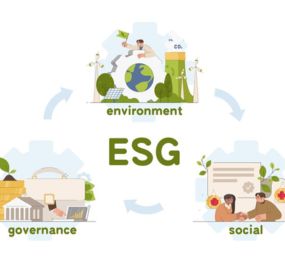In today's interconnected global economy, businesses are increasingly recognizing the importance of building ethical and sustainable supply chains. This goes beyond simply sourcing materials and components; it encompasses a comprehensive approach that prioritizes environmental stewardship, social responsibility, and ethical business practices throughout the entire supply chain.
Key Principles of Ethical and Sustainable Supply Chains:
- Environmental Sustainability: Minimizing environmental impact by prioritizing the use of renewable resources, reducing waste and emissions, and promoting resource conservation.
- Social Responsibility: Upholding fair labor practices, respecting human rights, and ensuring the well-being of workers throughout the supply chain. This includes fair wages, safe working conditions, and the prohibition of forced labor and child labor.
- Transparency and Traceability: Establishing transparent and traceable supply chains to enhance visibility and accountability. This involves mapping supply chains, conducting thorough supplier audits, and verifying the origin and ethical sourcing of materials.
- Stakeholder Engagement: Engaging with all stakeholders, including suppliers, workers, local communities, and NGOs, to understand their needs and concerns, and to foster collaborative solutions.
- Continuous Improvement: Regularly assessing and improving supply chain practices based on performance data, stakeholder feedback, and evolving industry best practices.
Benefits of Building Ethical and Sustainable Supply Chains:
- Enhanced Brand Reputation: Consumers are increasingly conscious of the ethical and environmental impact of the products they purchase. Companies with ethical and sustainable supply chains can enhance their brand reputation, build consumer trust, and gain a competitive advantage.
- Reduced Risks: Ethical and sustainable practices can help mitigate risks associated with supply chain disruptions, reputational damage, and legal liabilities.
- Improved Innovation: Addressing ethical and environmental challenges within the supply chain can drive innovation and lead to the development of more sustainable and efficient business models.
- Increased Stakeholder Engagement: By engaging with stakeholders throughout the supply chain, companies can build stronger relationships, foster trust, and create shared value.
Conclusion
Building ethical and sustainable supply chains is not just a moral imperative; it is a strategic business decision. By prioritizing environmental stewardship, social responsibility, and ethical business practices, companies can create a positive impact on people and the planet while also enhancing their long-term competitiveness and sustainability.
For more information and registration details, visit the official website: https://www.leadventgrp.com/events/2nd-annual-world-esg-and-climate-summit/details
For more information and group participation, contact us: [email protected]
















